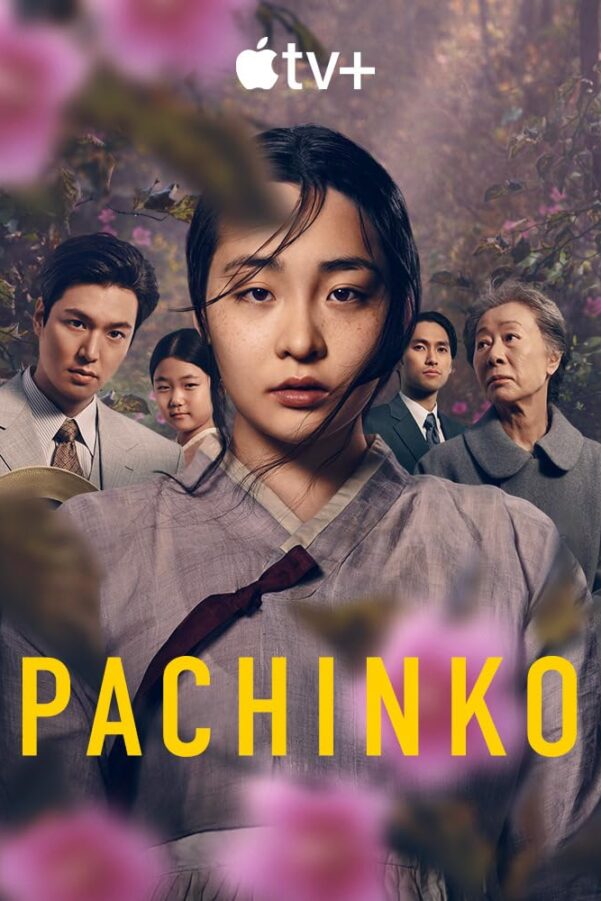Pachinko season two

Based on the 2017 novel written by Min Jin Lee, Pachinko is a multilingual TV series that tackles the complex dynamics of a Korean family growing up in Japan in the 20th century. It explores four generations of said family, oscillating between past and present, centring around two main characters: Sunja, the matriarch, and her early struggles assimilating into Japan, and Solomon, her grandson, trying to prove his worth and capability in the daunting world of business. This second season uses the backdrop of WWII and its effects on civilians living in Japan, including Sunja and her two sons, Noa and Mozasu. As circumstances turn dire, Sunja has no choice but to turn to her former lover and Noa’s father, Hansu, for help. Meanwhile, Solomon – jaded by betrayals and deals that have fallen through – has become ruthless and determined to get what he wants, even if it means crossing lines and using underhanded tactics.
The most striking aspect of Pachinko is the way it handles the cultural divide between Korea and Japan. The parallels in the experiences of both Sunja and Solomon, even with decades between the two timelines, are very telling of the lack of progress in society. On the surface, everything appears to be fine and people seem to have moved on. But gradually, the series peels back that outer layer to prove that stereotypes and prejudices against certain groups of people are still very much ingrained in society. It’s reflective of present-day events, especially in the UK regarding the treatment of immigrants. While a lot of Solomon and Sunja’s experiences are rooted in the rift between Korea and Japan, the themes Pachinko tackles are universal and timeless.
Outside of the historical and cultural implications of Pachinko, what livens up this second season is the new focus of characters. While Sunja remains the beating heart of the show, viewers will also get to know Noa and Mozasu. Hansu’s attempt to build a relationship with Noa is endearing, and Mozasu’s adventurous personality adds a splash of innocence to the very dreary and disruptive setting of war. Pachinko marvels at using the kids, especially Mozasu, as a subtle form of foreshadowing. There’s a certain satisfaction in his childish and intuitive dialogue that heavily sets precedence for some of the larger secrets that will come into play in Pachinko. It helps that Eunseong Kwon is brilliant in his line delivery as young Mozasu.
In addition to that, some very intriguing relationships form throughout this season, ones that showcase how circumstances brought on by war can build friendships between the most unlikely of people. Lee Minho and Minha Kim, especially, with their push-and-pull dynamic, are so captivating to follow as Hansu and Sunja. Whether one roots for their love story or not, the chemistry between the two actors certainly makes each of their interactions enthralling. But the absolute highlight is definitely Eunchae Jung as Kyunghee: her character goes through some very compelling arcs and development this season, providing a necessary breather for anyone looking to invest in a storyline that doesn’t necessarily follow the main family.
Pachinko season two is a strong continuation of the series. Anyone looking for a reason to watch it beyond Blackpink member Rosé’s cover of Viva la Vida can find an interesting story of family, love, business and culture. Although Sunja’s story in the past is a little bit more interesting to follow than Solomon’s, the show overall is well worth the watch. The universal and timeless themes of discrimination and prejudice, the brand-new energy injected by the new cast, and the different relationship dynamics at play this time around are just a few of the highlights.
Mae Trumata
Pachinko season two is released on Apple TV+ on 23rd August 2024.
Watch the trailer for Pachinko season two here:



























Facebook
Twitter
Instagram
YouTube
RSS